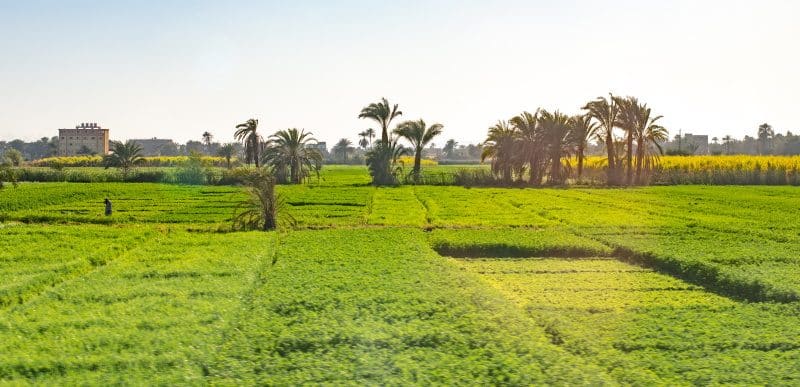While Algeria uses about 10,000 tons of chemical pesticides per year, a newly formed scientific committee in the capital Algiers should allow the development of the circular economy in the agricultural sector in order to preserve natural resources.
The Algerian government is setting up the Circular Economy and Agriculture Committee. This body, composed of academics and researchers, is responsible for “developing technical and scientific proposals for the implementation of a national strategy on the circular economy in the agricultural sector”.
The initiative, led by the National Chamber of Agriculture (CNA) and the Algerian Centre for Circular Economy (CALEC), will help strengthen the food systems in this North African country at a time when drought is affecting the harvests of many farmers. In this context, the committee will ensure rational use of water resources and optimal management of agricultural waste in Algeria.
The aim is to reconcile economic growth with environmental protection. “Unlike the linear economy based on production, consumption and waste disposal, the circular economy will allow us to transform agricultural residues into bio-products (pesticides and fertilisers), which will limit the massive use of chemicals known for their harmful impact on the environment and human and animal health,” explains Krim Louhab, the founder of CALEC.
For his part, Amine Zenasni, a researcher at the University of Tizi-Ouzou, said that Algeria should invest in “urban agriculture” insofar as Algerian cities have an enormous natural potential as well as professionals in sustainable development. An opinion shared by Hassan Chadjaa. According to the agricultural engineer, the circular economy will also allow for the reduction of water and energy consumption “thanks to the collection and sorting of household waste, which will allow for the extraction of renewable energy and organic products”, he explains.
Read also-ALGERIA: AND equips three wilayas with a selective waste sorting system
Thus, Algeria’s Circular Economy and Agriculture Committee will also have to encourage the recycling of plastics used in greenhouse agriculture, end-of-life irrigation pipes and plastic bags containing fertilisers and pesticides. This will help reduce pollution as well as create jobs for Algerians.
Benoit-Ivan Wansi





